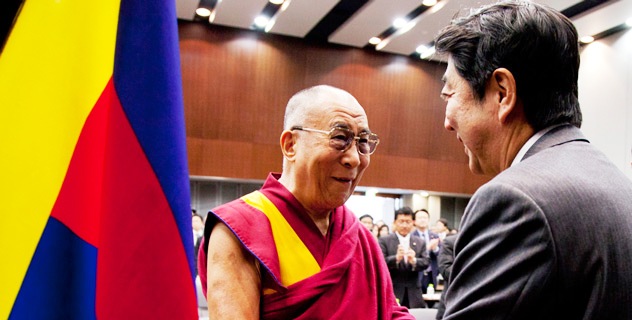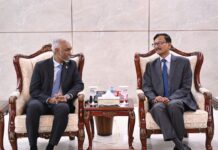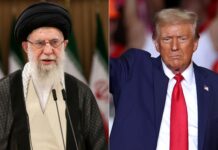DHARAMSHALA: The All-Party Japanese Parliamentary Support Group for Tibet, comprising former Prime Minister Shinzo Abe, has felicitated Central Tibetan Administration (CTA) President Lobsang Sangay as he is completing his two-term tenure and assured continuous support for the Tibetan cause.
In his virtual address from here, Sangay thanked the people and government of Japan for their unwavering support for the truth and justice of the Tibetan cause.
Recalling his first meeting with Shimomura Hakubun and Sakurai Yoshiko, president of an influential think tank in Japan, during their visit to Dharamsala under the leadership of former PM Abe, Sangay said since then he regularly visited Japan.
“Today’s meeting sends a right and strong message to the world that Japan stands for human rights and democracy. You are also sending a strong message to six million Tibetans suffering China’s repression in Tibet that Japan stands for justice,” he said, adding support for Tibet does not mean one is anti-China.
Praising Japan for playing a major role in supporting Tibet, Uyghur, Mongolia, Hong Kong and Taiwan, he said “doing so in Japan is sending a message that human rights are fundamental and democracy is universal. These values are in contrast with what China says is socialism with Chinese characteristics”.
Sangay expressed fear that the choice before the whole world is that “either you transform China or China will transform you”.
“Either you transform China to make it more democratic where they respect human rights of the Tibetans, Uyghurs, Mongolians, people of Hong Kong and Taiwan or China will dictate and impose their socialism with Chinese characteristics all over the world, including Japan.”
Sangay said according to Freedom House report the situation in Tibet is as bad as in Syria and all sorts of human rights violations are taking place in Tibet.
“Monasteries are being demolished, Tibetan language is discouraged and more than half a million Tibetans are uprooted from the nomadic areas and put them in labour camp-like situations to assimilate Tibet into China. This assimilation drive is threatening the very identity and civilization of Tibetan,” a post on the CTA site quoting Sangay said.
In his address, Shimomura Hakubun, former education minister of Japan and the chairman of the Japanese Parliamentary Support Group for Tibet, expressed his happiness of having the opportunity to hold online event to felicitate Sangay and thank him for his leadership of the Tibetan government in exile based in Dharamsala.
Shimomura recalled that the inspiration for the creation of the Japanese Parliamentary Support Group started 10 years ago when he got the opportunity to accompany former Prime Minister Abe, Japanese lawmakers and Sakurai Yoshiko visited India for a meeting organised by Japan Institute for National Fundamentals (JINF), to strengthen ties with India.
He said following the meeting Sakurai told him that she was able to get an appointment to meet Tibetan spiritual leader the Dalai Lama in Dharamsala, following which they travelled to Dharamsala by flight and road, which were in bad condition.
“After we reached Dharamsala, we met Sikyong Lobsang Sangay at his modest office and spoke at great length about the Tibet issue and learned about his interest in building human resources by educating Tibetans. We readily expressed our desire to His Holiness and the Sikyong about creating a parliamentary support group in Japan to support the Tibetan cause,” he said.
He said since then the Japanese parliamentary support group has grown into the world’s largest parliamentary support group and “we have been making efforts to the Tibetan community through Japan’s ODA (Official Development Assistance) fund”.
He also reaffirmed that they will continue to strengthen their support and make concerted efforts to help the Tibetan people, while adding that they had specially invited former Prime Minister Abe to the online felicitation ceremony and were hopeful for his participation in the parliamentary support group for Tibet.
Tibetan spiritual leader the Dalai Lama has lived in India since fleeing his homeland in 1959. The Tibetan exile administration is based in Dharamsala, Himachal Pradesh.







